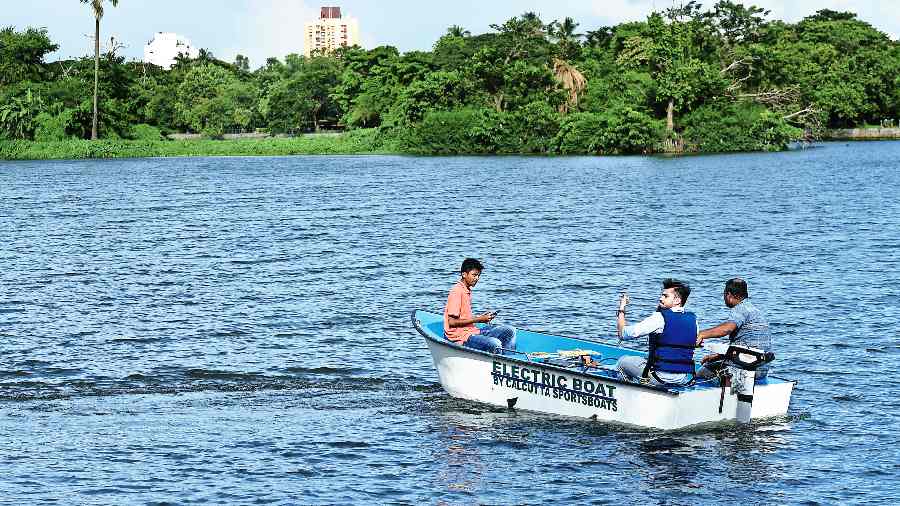Exactly a month ago, the city police had announced standard operating procedures for the resumption of rowing in the Rabindra Sarobar.
But the sport has yet to make a comeback to its only venue in the state. Still worse, nobody seems to know when it will.
Two teenage rowers who were practising for a school regatta drowned in the Rabindra Sarobar during a squall on May 21, prompting a blanket ban on rowing in the lake till safety protocols were in place.
The procurement of rescue boats is still the main stumbling block, as it was a month ago.
The contention of the three clubs — the Lake Club, Calcutta Rowing Club and Bengal Rowing Club — is that battery-operated boats are not fast enough to respond to a crisis.
They have sought some relaxation of what they call a ban imposed by the National Green Tribunal on the use of petrol or diesel-powered boats in the lake.
The KMDA, custodian of the lake, is supposed to correspond with the NGT for a special permission to allow the use of rescue boats while rowing is on in the lake.
“High-speed rescue boats must be present during regatta and practice sessions, as well as any other water sports,” said the SOP released by the police on June 9.
On June 18, the three clubs wrote back to the police and the KMDA.
“These boats should essentially be petrol/diesel engine operated as other options available cannot generate the required speed.... We will request you to kindly include this point in your SOP, to avoid any dispute/misinterpretation in the future,” said the letter.
Officials of the clubs said they were yet to get an answer to the letter.
Sources in Lalbazar acknowledged the receipt of the letter from the clubs. But the KMDA was entrusted with the responsibility of communicating with the NGT for any clearance, they added.
A KMDA official, however, said: “I have no knowledge of the letter”.
The Telegraph spoke to officials of the three clubs and the state rowing association. Nobody could give a tentative timeline of the resumption of rowing.
“We want rowing to resume at the earliest. The rowers are suffering because of the ban. But buying a boat is a big investment. We cannot do anything in haste. We are waiting for permission to use fuel-run boats,” said an official of a rowing club.
On Friday, a battery-operated boat had a trial run in the lake. The boat suffered from a mechanical glitch in the middle of the journey, said an eyewitness.
A little over a week ago, another electric boat was tested in the lake. It travelled 900m in around six minutes.
“A rowing boat takes three to four minutes to cover the stretch. Ideally, a rescue boat should cover it in 30 seconds to one minute. But battery-operated boats are unlikely to generate that speed,” said Debabrata Datta, joint secretary of the Lake Club, which had called for the two trials.
Officials of two other clubs also said they were in the process of talking to boat manufacturers. “But so far, the feedback we have received is that electric boats will not be fast enough,” said an official of Bengal Rowing Club.
“We have agreed to every other protocol laid down by the police. But the purpose of the rescue boat will not be served by battery-operated boats,” said an official of West Bengal Rowing Association.
Environment activist Subhas Datta said the NGT order was being “misinterpreted”.
“The NGT order bans the use of motorised vehicles inside the Rabindra Sarobar. But the NGT never said that diesel/petrol-powered rescue boats cannot be used in the water,” said Datta.
